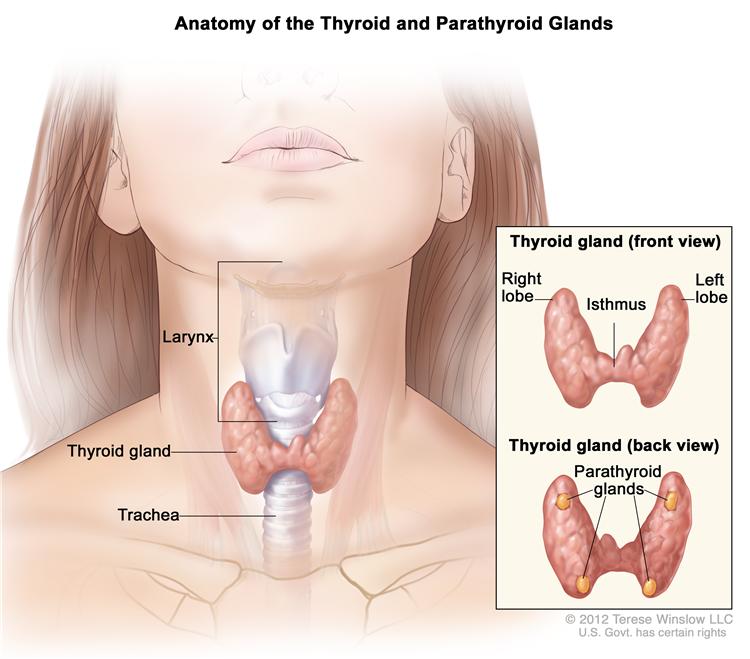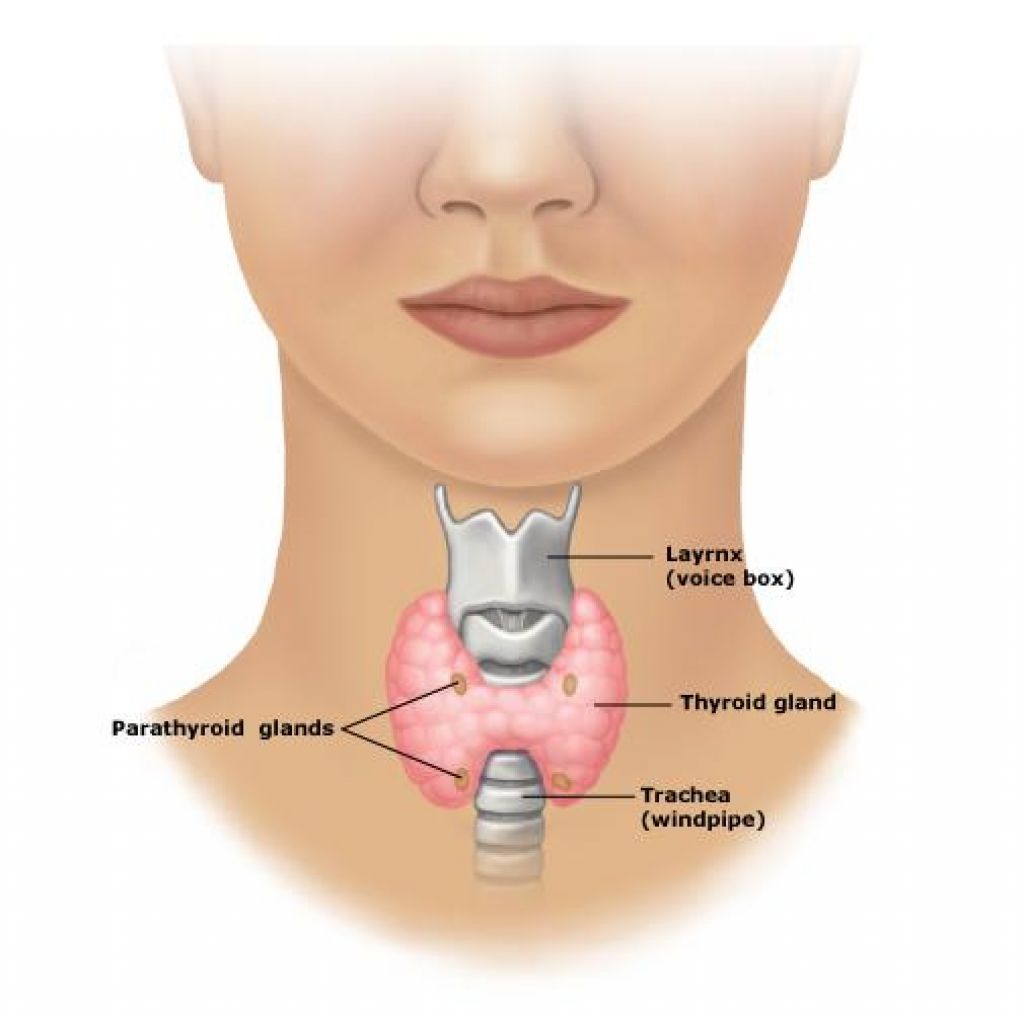Hyperparathyroidism is a disorder in which the parathyroid glands in your neck produce too much parathyroid hormone (PTH).

Most people have four pea-sized glands, called parathyroid glands, on the thyroid gland in the neck. Though their names are similar, the thyroid and parathyroid glands are completely different. The parathyroid glands make parathyroid hormone (PTH), which helps your body keep the right balance of calcium and phosphorous.
If your parathyroid glands make too much or too little hormone, it disrupts this balance. If they secrete extra PTH, you have hyperparathyroidism, and your blood calcium rises. In many cases, a benign tumor on a parathyroid gland makes it overactive. Or, the extra hormones can come from enlarged parathyroid glands. Very rarely, the cause is cancer.
The parathyroid glands are located in the neck, near or attached to the back side of the thyroid gland. They produce parathyroid hormone. This hormone controls calcium, phosphorus, and vitamin D levels in the blood and bone. In some cases this can lead to the patient gaining weight, regardless of diet or level of activity.
When calcium levels are too low, the body responds by making more parathyroid hormone. This hormone causes calcium levels in the blood to rise, as more calcium is taken from the bone and reabsorbed by the intestines and kidney.
One or more of the parathyroid glands may grow larger. This leads to too much parathyroid hormone (a condition called primary hyperparathyroidism). Most often, the cause is not known.
- The disease is most common in people over age 60, but it can also occur in younger adults. Hyperparathyroidism in childhood is very unusual.
- Women are more likely to be affected than men.
- Radiation to the head and neck increases the risk.
- Rarely, the disease is caused by parathyroid cancer.
If you do not have enough PTH, you have hypoparathyroidism. Your blood will have too little calcium and too much phosphorous. Causes include injury to the glands, endocrine disorders, or genetic conditions. Treatment is aimed at restoring the balance of calcium and phosphorous.
Sometimes hyperparathyroidism is diagnosed before symptoms occur, but nearly all patients with parathyroid problems have symptoms. Sometimes the symptoms are really obvious, like kidney stones, frequent headaches, fatigue, and depression.
Symptoms are mostly caused by damage to organs from high calcium levels in the blood, or by the loss of calcium from the bones.
Sometimes the symptoms are not so obvious, like high blood pressure and the inability to concentrate.
Symptoms of hyperparathyroidism:
Hyperparathyroidism is an interesting disease in that it can show up differently in different people. Sometimes it makes people miserable within the first year or two of having high blood calcium. Other times it can go 6-8 years without causing too many problems other than fatigue, bad memory, kidney stones, and osteoporosis.
“There is no other disease that is so easy to cure which has such a huge impact on a person’s overall health and their quality of life” Dr James Norman, 2011 address to the American College of Surgeons.
Possible Symptoms of Parathyroid Disease (Hyperparathyroidism)
- Loss of energy. Don’t feel like doing much. Tired all the time. Chronic fatigue. (#1 symptom)
- Just don’t feel well; don’t quite feel normal. Hard to explain but just feel kind of bad.
- Feel old. Don’t have the interest in things that you used to.
- Can’t concentrate, or can’t keep your concentration like in the past.
- Osteoporosis and Osteopenia.
- Bones hurt; typically it’s bones in the legs and arms but can be most bones.
- Don’t sleep like you used to. Wake up in middle of night. Trouble getting to sleep.
- Tired during the day and frequently feel like you want a nap (but naps don’t help).
- Spouse claims you are more irritable and harder to get along with (cranky, bitchy).
- Forget simple things that you used to remember very easily (worsening memory).
- Gastric acid reflux; heartburn; GERD.
- Decrease in sex drive.
- Thinning hair (predominately in middle aged females on the front part of the scalp).
- Kidney Stones (and eventually kidney failure). (blog)
- High Blood Pressure (sometimes mild, sometimes quite severe; up and down a lot).
- Recurrent Headaches (usually patients under the age of 40).
- Heart Palpitations (arrhythmias). Typically atrial arrhythmias. (blog)
- Atrial Fibrillation (rapid heart rate, often requiring blood thinners and pacemakers). (blog)
- High liver function tests (liver blood tests).
- Development of MGUS and abnormal blood protein levels.
Medical conditions that cause low blood calcium levels or increased phosphate levels can lead to secondary hyperparathyroidism as we have found and this are the common causes:
- Conditions that make it hard for the body to break down phosphate
- Kidney failure
- Not enough calcium in the diet
- Too much calcium lost in the urine
- Vitamin D disorders (which are often seen in children who do not get enough nutrition and in older adults who do not get enough sunlight
- Problems absorbing nutrients from food
Outlook (Prognosis):
The outlook depends on the type of hyperparathyroidism.
Long-term problems that can occur when hyperparathyroidism is not well controlled include:
- Increased risk of bone fractures
- High blood pressure and heart disease
- Kidney stones
Call your health care provider if you have symptoms of hyperparathyroidism.
Alternative Names: Parathyroid related hypercalcemia

